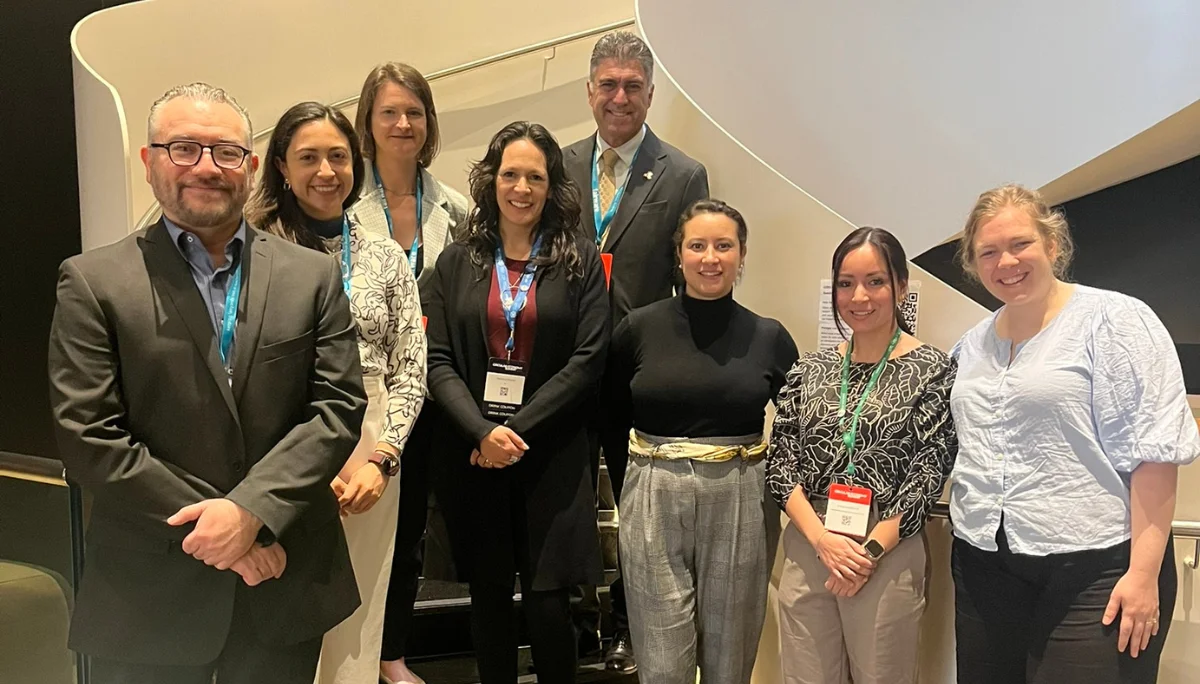CEC and the Ellen MacArthur Foundation Team Up to Advance the Circular Economy of Electronics in North America

Ellen MacArthur Foundation and CEC Secretariat team members at the Canadian Circular Economy Summit in April 2025.
The Commission for Environmental Cooperation (CEC) is pleased to announce a new collaboration with the Ellen MacArthur Foundation, a global leader in accelerating the transition to a Circular Economy. The Foundation works with businesses, policymakers and other key actors to eliminate waste and pollution, circulate products and materials, and regenerate nature.
Addressing the Fastest-Growing Waste Stream
Electronics are one of the world’s fastest-growing waste streams. In 2022, an estimated 62 million tonnes of e-waste were produced globally. Every year, hidden within what we call 'waste', $60 billion worth of products and raw materials are discarded, creating a significant economic and environmental opportunity for circular innovation and sustainable growth.
The CEC’s initiative, “Opportunities for Circularity in the North American Electronics Sector, Phase 1,” will assess the potential for circularity in North America’s electronics sector and highlight case studies and lessons learned for the economies of Canada, Mexico and the United States. The project aims to identify opportunities for regional cooperation and develop practical tools to support industry, governments and society, to advance circularity in each country and the region.
Building a Collaborative Path Forward
Together with the Ellen MacArthur Foundation, the CEC will focus its initial efforts on consulting with a broad array of actors in the North American electronics mobile phone subsector. In addition to conducting comprehensive research to identify intervention points that can enable circularity across the full life cycle in mobile phones, the project will also feature a series of roundtable discussions, focusing on the incentives, business models and infrastructure needed. This process will identify key challenges and opportunities for policy and implementation.
The goal is to better understand each country’s unique context, while surfacing replicable case studies and best practices to raise awareness among decision makers, businesses and the public about the benefits of circularity. By developing a Circularity Opportunity Pathways document with a focus on policy and implementation, this initiative will help advance circularity in the North American mobile phone subsector.
Fostering Long-Term Impact
This initiative marks an important first step toward larger-scale efforts to advance circularity and build more sustainable supply chains across our integrated economies. The CEC and the Ellen MacArthur Foundation recognize the importance of accelerating the shift toward a Circular Economy, to build a more sustainable future for North America.
CEC Puts Circular Economy in the Spotlight
You can learn more about the CEC’s work on circularity here, and join the conversation in person or online at our 32nd annual Council Session and Joint Public Advisory Committee (JPAC) Public Forum, taking place 24–25 July in Mexico City under the theme, “Nexus between Circular Economy and Nature-based Solutions in North America.” Register now!
If you would like to know more about CEC initiatives, opportunities and efforts, you can sign up for our newsletter and follow us on social media.
